When we eat our body secretes insulin, a hormone created in the pancreas. Insulin is then used as glucose for fuel, or stored as fat for later. Insulin is responsible for regulating blood sugar levels in the body and making sure they don’t go too high or low. However, if we’re stressed or our diets are over processed, we can develop insulin resistance.
When our cells become resistant to insulin due to blockages from toxicity and inflammation, the pancreas begins to overproduce insulin leading to imbalanced blood sugar, sugar-cravings, energy crashes, mood swings, and fatigue.
Foods high in sugar or empty carbs like white bread, pasta, potato chips and baked good will often satiate us temporarily but cause a blood sugar spike, followed by a crash within hours of consumption. When the blood sugar is unstable, you may find you gain more weight and experience higher levels of inflammation (more chronic pain or discomfort.)
Here are a few signs Your blood sugar may be unstable:
- When you miss a meal, you become easily irritable (aka “hangry”)
- Your sugar cravings are ravenous
- You’re frequently thirsty
- You experience brain fog or have a hard time concentrating
- You don’t always sleep through the night
- Losing weight has been difficult for you
- You get shaky or jittery
- You need caffeine to survive the day
- You get light headed or dizzy when you haven’t eaten
Here are 5 Ways to Balance Your Blood Sugar
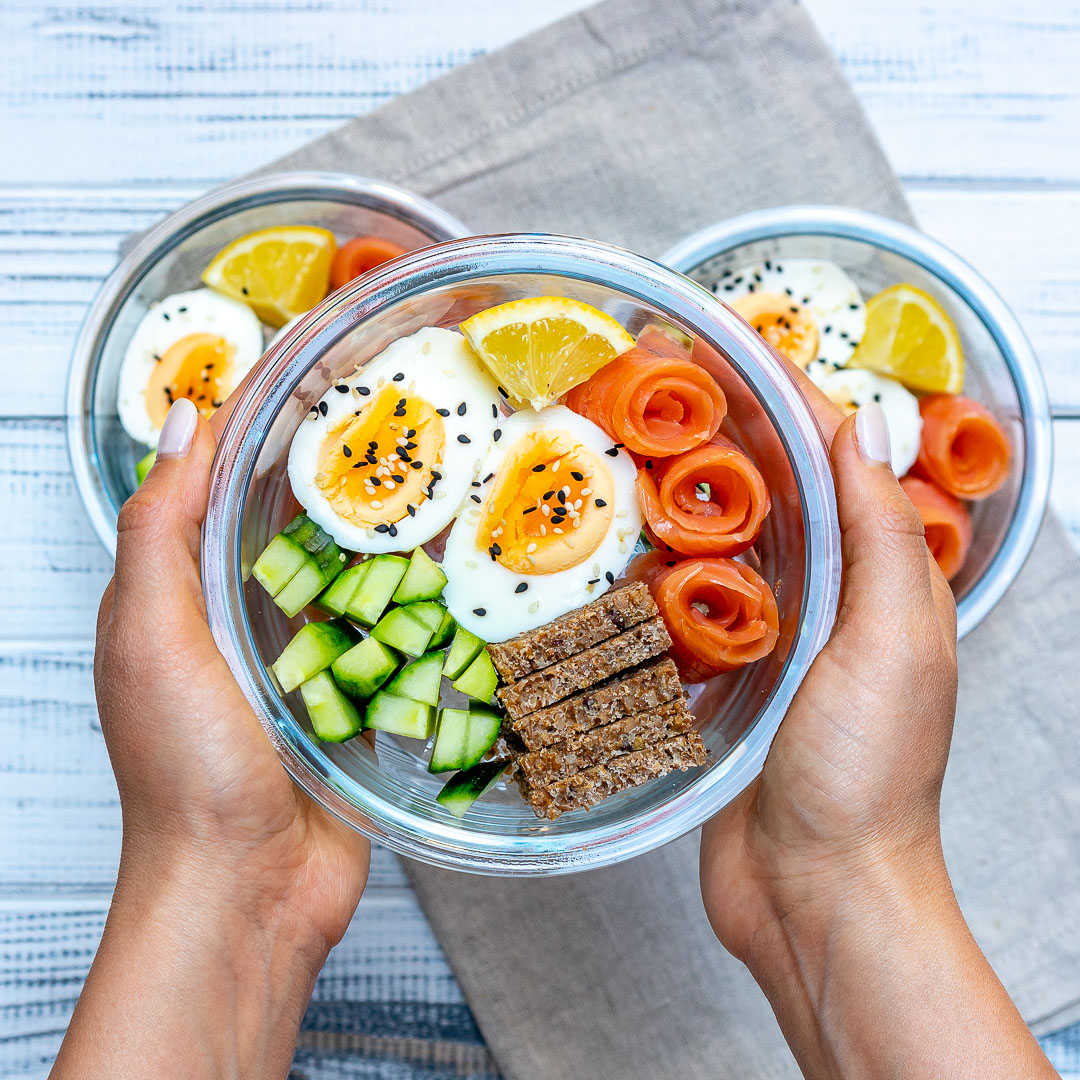
1. Eat Smaller Protein Rich Meals Frequently throughout the Day
To stabilize your blood sugar, eat smaller frequent meals throughout the day. When we skip meals or wait too long to eat, our blood sugar crashes and we’re at risk of giving into sugar cravings and overeating. All of these behaviors reinforce the pattern, causing more inflammation in the body. With the 30 Day Clean Eating Challenge, our meal plans are designed to help stabilize blood sugar and give you adequate amounts of protein to beat sugar cravings and lose weight. Kiss your brain fog, exhaustion, and lack of motivation goodbye!
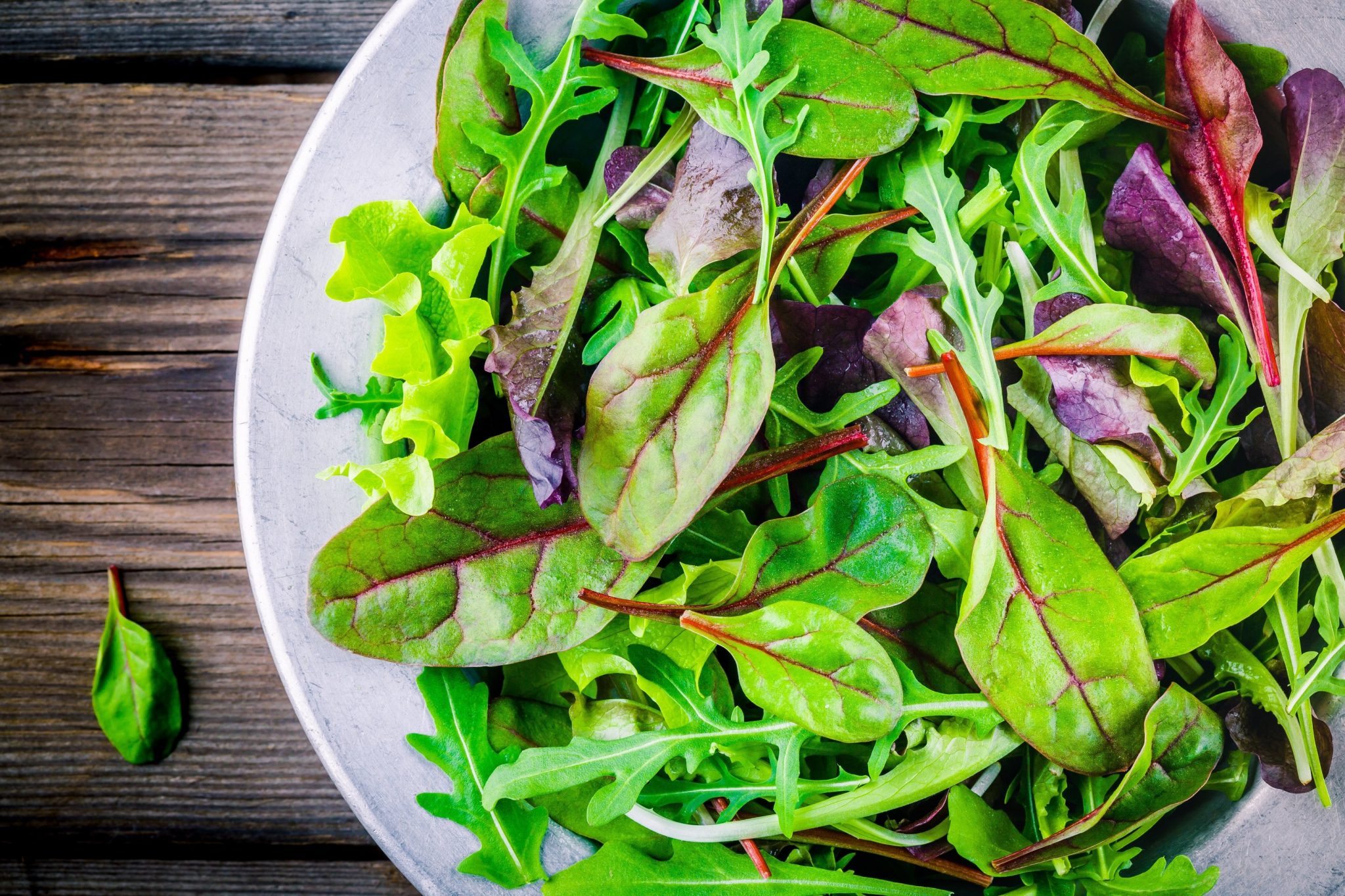
2. Eat High Fiber, Low-Spike Risk Foods
Foods like leafy greens, veggies, and herbs are all fiber-rich foods that don’t cause a big spike in blood sugar. Avoid an excess of foods like white potato, bread, juices (yes, even freshly squeezed), fruit flavored yogurt and baked goods. These all contribute to a spike in insulin. You can also add in extra protein and fat which will satiate your hunger and boost your energy levels! Avocados, chicken, salmon, tuna, and eggs are excellent choices. Ultimately, if you practice Clean Eating, you’ve got it covered. The focus should be on eating real, whole foods and crowding out the “bad” with the “good”. This alone will help reduce inflammation big-time, leading to more energy and natural weight loss. If you started Clean Eating and are still struggling to lose weight, here are 7 reasons you might be stuck.
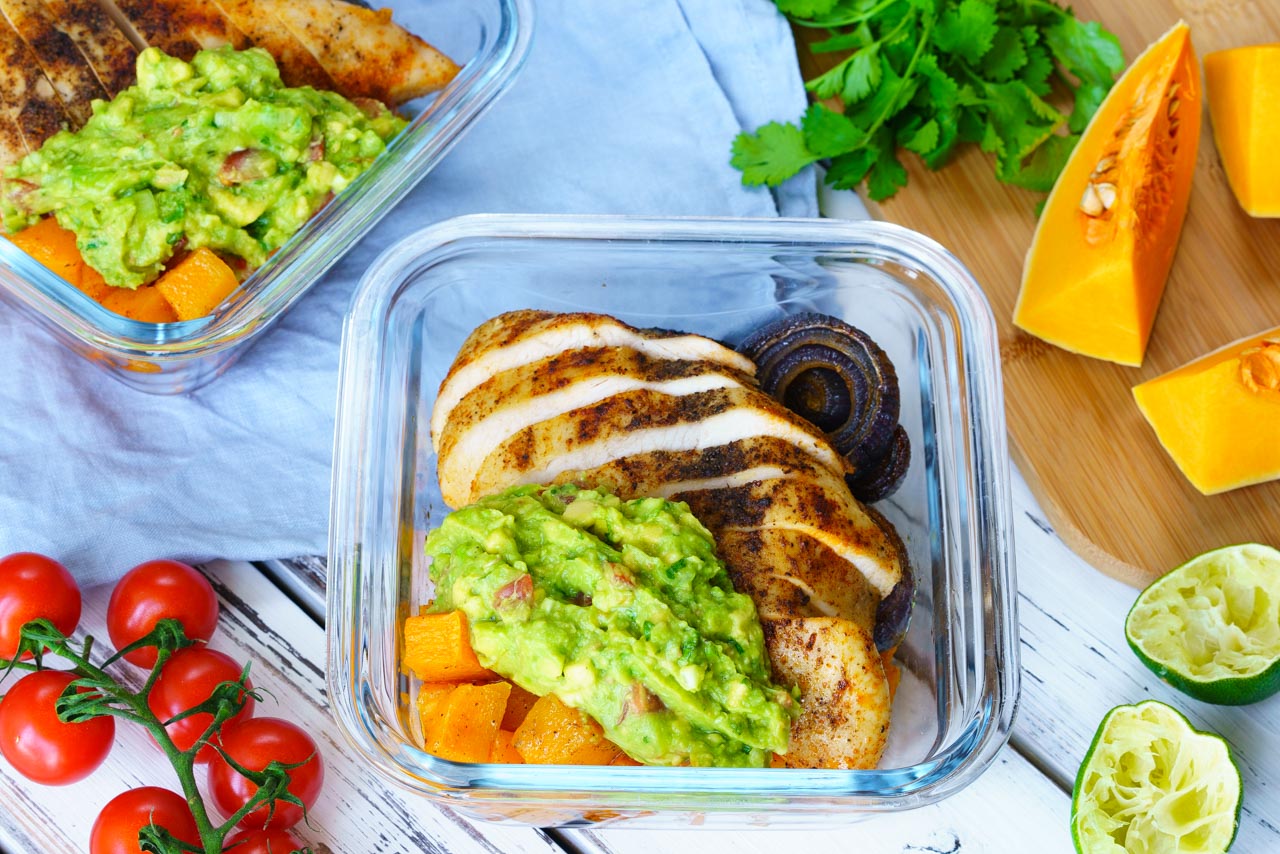
3. Meal Prep to Avoid Hunger Crashes that Lead to Binging
Meal prep is one of the MOST important things to put into action. Without having healthy, balanced meals on hand, it’s all too easy to fall into the trap of convenience. But even when your brain is telling you that high-sugar, fried food is the right choice, your body knows best. Start meal prepping a couple times a week and you’ll notice a huge difference in how you feel. Here are a few great recipes to try out this week:
Clean Eating Crockpot Mexican Chicken Bowls
Clean Eating Greek Chicken Meal Prep Bowls
Need help with Meal Prep? Our Meal Prep Made Easy Program might be exactly what you need to transform your lifestyle. Over 100 videos to help you figure out WHAT and HOW to prep like a seasoned pro.
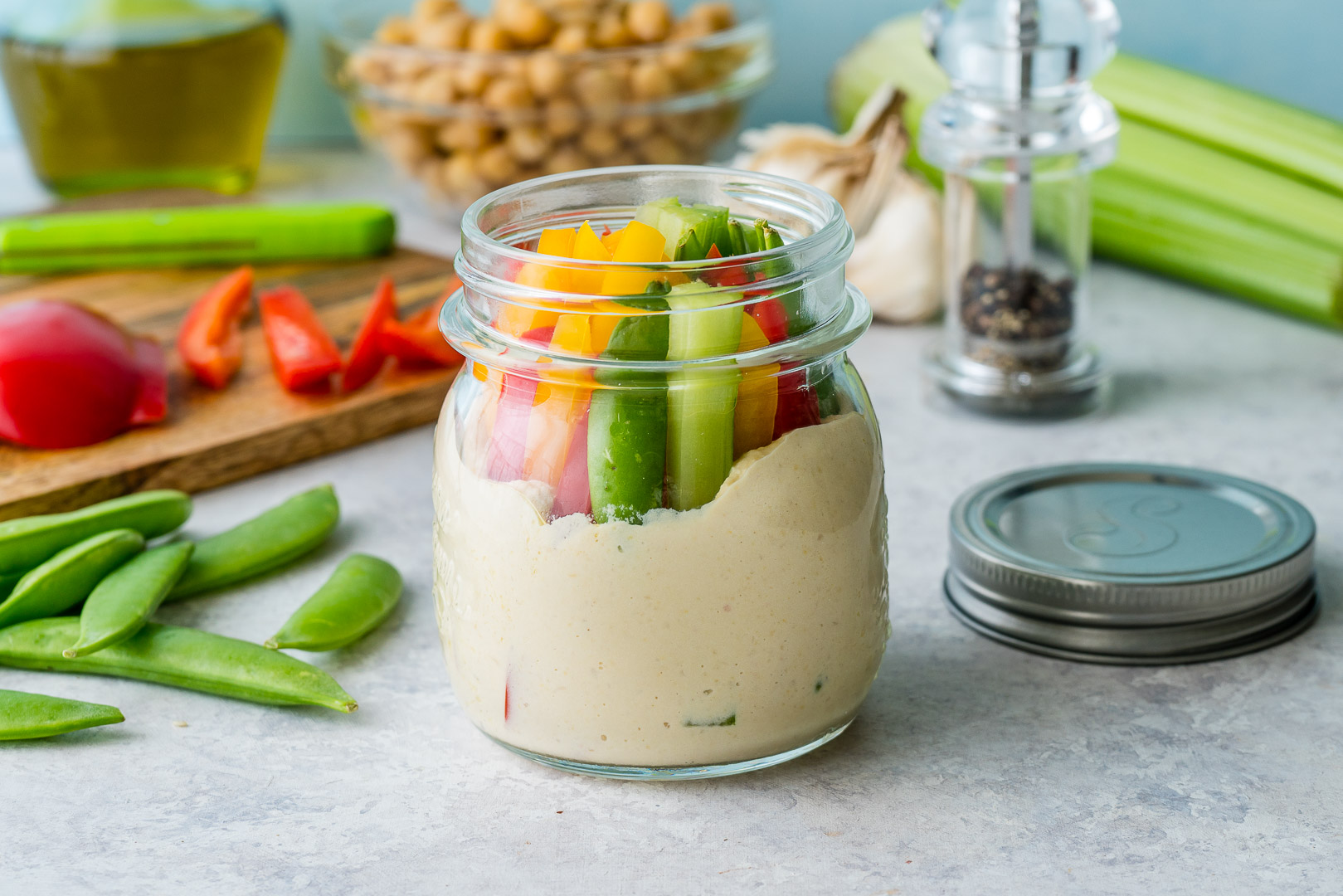
4. Pack Snacks that Keep You Balanced:
Snacking smart is the name of the game when it comes to balancing your blood sugar. Reduce inflammation and lose weight naturally by changing what you eat. The little things add up, so wherever you can, create healthy snacks that you can bring on the go with you. Here is a few Clean Eating snack recipes that won’t spike your insulin:
Hummus & Crunchy Veggies Snack Jars
Mason Jars Snacks 4 Ways to Prep Ahead!

5. Cook with Fresh and Dried Herbs:
Herbs like cinnamon, turmeric, rosemary, garlic, ginger, oregano, parsley, and sage are all known to help balance blood sugar levels! These herbs pack a lot of flavor and contain antioxidants and anti-inflammatory components too! Here are a few recipes you can try to incorporate herbs:
Roasted Butternut Squash Scoops
Sheet Pan Orange Ginger Chicken
from Clean Food Crush https://ift.tt/2D1FHOz

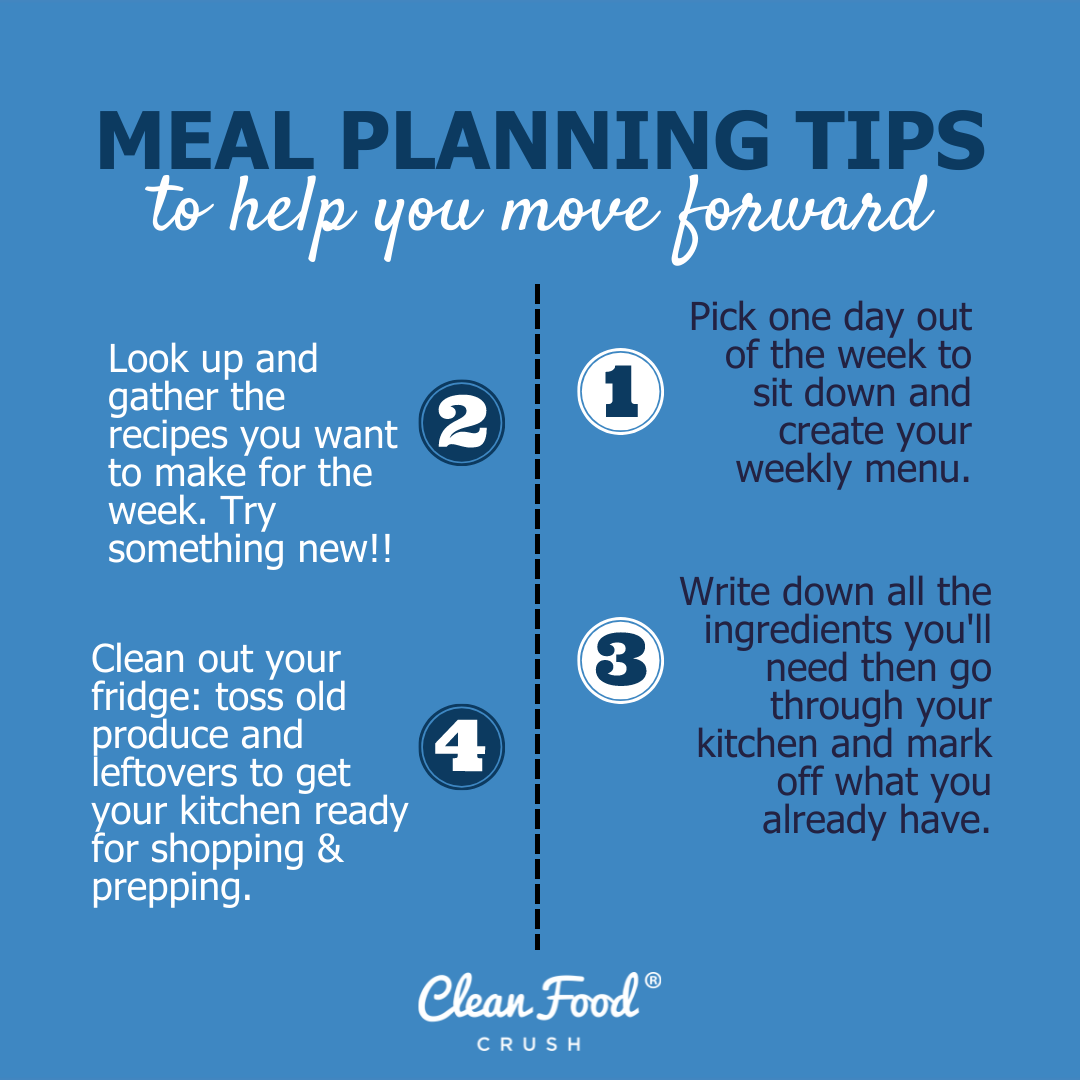

No comments:
Post a Comment